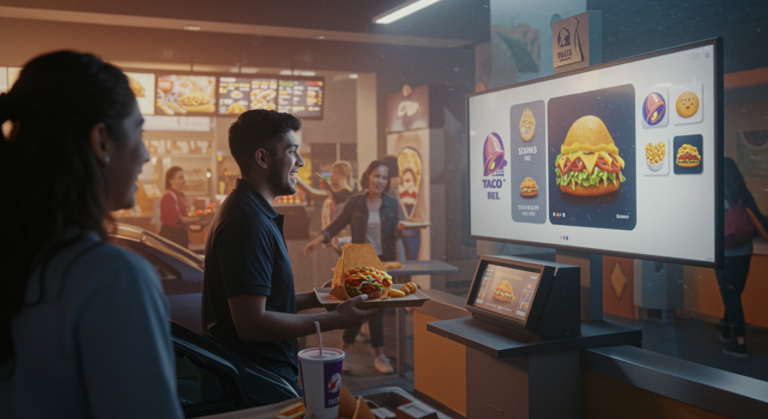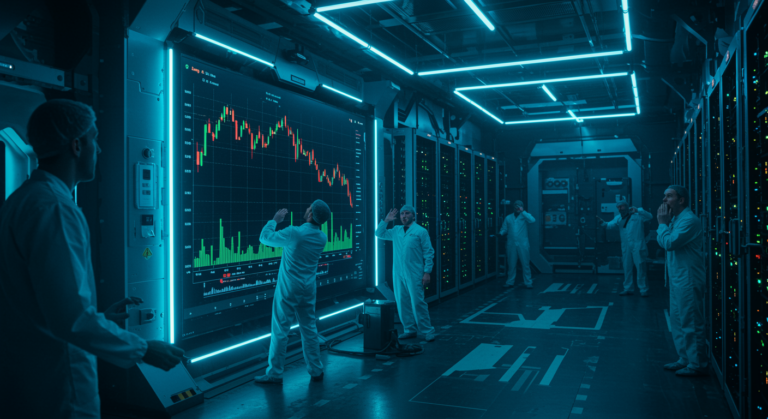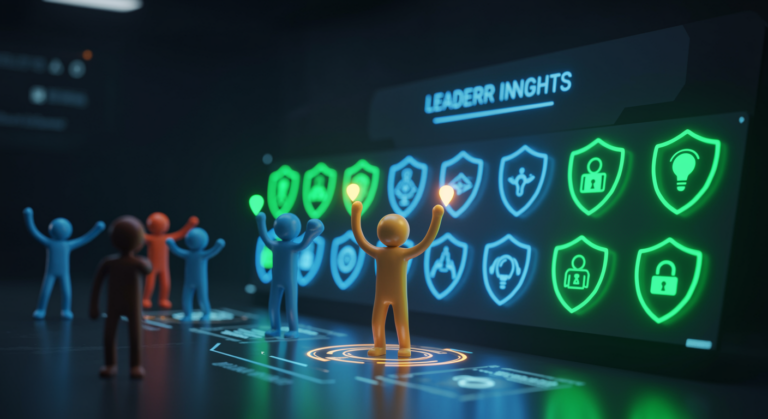
ChatGPT Saves Woman’s Life: Inspiring AI Story
How ChatGPT Saves a Woman’s Life: The Turning Point
Imagine feeling dismissed by doctors after months of unexplained symptoms—rapid weight loss, intense stomach pains, and fatigue that won’t quit. That’s exactly what happened to Lauren Bannon, a 40-year-old business owner juggling life between North Carolina and the US Virgin Islands. But in a twist that sounds like science fiction, ChatGPT saves woman’s life by stepping in where human experts initially faltered, highlighting AI’s growing role in spotting hidden health threats.
This isn’t just a tech headline; it’s a real story of resilience and innovation. Lauren had visited multiple doctors, only to be told her issues stemmed from rheumatoid arthritis and acid reflux. Frustrated and seeking clarity, she turned to ChatGPT, a tool she’d used for work, and entered her symptoms. What followed was a chain of events that caught her thyroid cancer early, potentially averting a much graver outcome. Have you ever wondered if AI could offer insights your doctor might miss?
The Journey of ChatGPT Saving a Woman’s Life Through Early Detection
Lauren’s ordeal began innocently enough, with symptoms that seemed manageable but quickly escalated. Doctors attributed her discomfort to common conditions, prescribing treatments that didn’t help. Desperate for answers, she consulted ChatGPT, which analyzed her description and suggested something overlooked: the possibility of Hashimoto’s disease, along with recommendations for specific thyroid tests.
This moment underscores how ChatGPT saves woman’s life by providing an objective lens on health data. When Lauren pushed for those tests, imaging revealed two small cancerous tumors in her thyroid. It’s a stark reminder that while AI isn’t infallible, it can process vast amounts of information quickly, often spotting patterns humans might overlook due to time constraints or bias.
AI vs. Human Diagnosis: A Closer Look
- Initial medical assessments focused on rheumatoid arthritis and acid reflux, common diagnoses that delayed deeper investigation.
- ChatGPT, however, flagged Hashimoto’s disease and urged thyroid testing, based on symptom correlations from its training data.
- Follow-up scans confirmed early-stage thyroid cancer, proving how timely intervention from AI can make all the difference.
Reflecting on this, Lauren said, “The doctor told me I was lucky to catch it early. I know ChatGPT saves woman’s life in my case—it pushed me to advocate harder.” This experience raises an intriguing question: In an era of advanced tech, how can we balance AI insights with professional medical advice to improve outcomes?
The Rising Power of AI in Healthcare and How It Saves Lives
Stories like Lauren’s are fueling excitement about AI’s potential in healthcare. ChatGPT saves woman’s life not as a miracle worker, but as a tool that complements human expertise, especially in early detection scenarios. Research shows that AI models like GPT-4 can achieve diagnostic accuracies rivaling trained physicians when given detailed inputs, with studies reporting rates above 80-90%.
Of course, AI isn’t perfect—it’s only as good as the data it’s fed. But in Lauren’s case, it bridged a gap, prompting tests that led to a lifesaving diagnosis. This highlights a broader shift: AI-driven tools are becoming essential for patients who feel unheard, offering instant, data-backed suggestions that encourage proactive health management.
Key Studies on ChatGPT’s Role in Medical Accuracy
- GPT-4 has demonstrated diagnostic accuracy nearly matching physicians, particularly with comprehensive symptom details, as noted in a JMIR study.
- One analysis found ChatGPT reaching 77% accuracy in final diagnoses, outperforming in cases with clear, detailed user inputs.
- Its strength lies in unbiased pattern recognition, making it a valuable ally for early cancer detection and other critical health issues.
If you’re dealing with persistent symptoms, could AI like ChatGPT help you piece together the puzzle faster? It’s worth considering, but always as a starting point for discussion with your doctor.
Real-Life Tales: When AI Steps in to Save Lives
Lauren’s story isn’t alone; it’s part of a growing collection of anecdotes where AI has made a tangible impact. For instance, a pregnant woman used ChatGPT for advice on jaw tightness, and it urged immediate emergency care—advice that doctors later credited with saving both her and her baby’s life. These cases show how ChatGPT saves woman’s life and others by recognizing red flags that might be dismissed.
In another example, patients have reported AI catching symptoms of conditions like diabetes or heart issues after initial misdiagnoses. It’s not about replacing doctors; it’s about empowerment. As one user shared, “I still get chills thinking about it. ChatGPT turned a vague worry into urgent action, saving lives in the process.”
“What if a simple chat could change everything? For me, it did—I owe my health to this technology.”
These stories prompt us to think: In your own life, have you explored AI for everyday advice, and could it extend to health in a meaningful way?
Why AI is Transforming Patient Advocacy and Saving Lives
The accessibility of AI chatbots like ChatGPT is revolutionizing how people approach their health. For Lauren, it meant having a voice when she felt ignored, turning vague symptoms into actionable steps. By offering objective analysis, AI empowers individuals to demand better care, potentially saving lives through early intervention.
Consider the benefits: AI provides instant access to information, free from the biases that can affect human judgments, and it encourages users to seek specific tests or second opinions. Lauren’s advice is straightforward: “If ChatGPT saves woman’s life like it did mine, use it wisely—pair it with professional follow-up to avoid any risks.”
Top Benefits of AI Chatbots for Health Empowerment
- They deliver unbiased symptom reviews, drawing from vast datasets without emotional fatigue.
- Users get 24/7 guidance, helping prepare for doctor visits or clarify concerns on the spot.
- AI often suggests overlooked tests, fostering a proactive stance that could prevent conditions like early cancer from advancing.
- Ultimately, it boosts confidence, urging patients to advocate more effectively for their well-being.
Actionable tip: Next time you’re unsure about a symptom, try inputting it into an AI tool—but remember, it’s just a conversation starter, not a diagnosis.
Comparing AI and Doctors: Where ChatGPT Shines in Saving Lives
When it comes to healthcare, how does ChatGPT stack up against traditional doctors, especially in scenarios where it saves lives like Lauren’s? Both have strengths, but AI’s speed and data-driven approach offer unique advantages. For example, while doctors bring empathy and hands-on expertise, ChatGPT provides immediate, round-the-clock insights that can prompt early cancer detection.
This comparison isn’t about choosing one over the other; it’s about synergy. In Lauren’s case, AI’s input led to the critical tests that doctors then confirmed, illustrating a powerful partnership.
| Aspect | Physicians | ChatGPT (AI) |
|---|---|---|
| Diagnostic Accuracy | Up to 98.3% with full data | Around 97% for top differentials, as in GPT-4 studies |
| Response Time | Varies with schedules | Instant, aiding in urgent cases where ChatGPT saves woman’s life |
| Empathy Level | High and personalized | Neutral, focusing purely on facts |
| Test Ordering | Direct capability | Advisory only, requiring human action |
| Bias Potential | Present due to human factors | Data-dependent, but generally objective |
Understanding AI’s Limits While It Saves Lives
Despite successes like how ChatGPT saves woman’s life, it’s crucial to recognize its boundaries. AI can’t replace a physical exam or professional judgment; it relies entirely on the information you provide. Experts warn against using it as a standalone solution, emphasizing that tools like ChatGPT should support, not supplant, medical care.
For safety, use AI when you’re seeking a second perspective or preparing for appointments, but never ignore severe symptoms without consulting a doctor. What precautions do you take when exploring health tech?
When AI Can Be a Helpful Ally in Health
- If doctors aren’t addressing your concerns, AI might offer new angles to explore.
- Use it for preliminary advice before accepting a diagnosis, as in early cancer detection cases.
- It’s ideal for quick info or hypotheticals, but always verify with experts.
The Future of AI: How It Will Continue to Save Lives
Looking ahead, AI’s integration into healthcare promises even greater potential for saving lives. From advanced symptom checkers to hospital systems, tools like ChatGPT could enhance early cancer detection and reduce misdiagnoses through human-AI collaboration. As technology evolves, patients will have more resources to stay proactive.
Imagine a world where AI routinely assists in routine check-ups, catching issues before they escalate. For Lauren, this future is already here, and it could be for you too.
What’s Next for Patients and AI in Healthcare
- Expect more AI apps for home-based monitoring and early warnings.
- Hospitals may incorporate these tools for faster, more accurate diagnoses.
- Patients will gain tools to actively participate in their care, potentially saving lives daily.
Wrapping Up: The Impact of AI in Saving Lives Like Lauren’s
In the end, ChatGPT saves woman’s life stories like Lauren’s remind us of AI’s transformative power in healthcare. It’s not about dethroning doctors but creating a team where technology amplifies human efforts for better results. By using AI responsibly, you can take charge of your health in ways that were once unimaginable.
If this inspires you, share your thoughts in the comments below, explore more on AI in health, or check out resources like Macmillan Cancer Support for guidance. What are your experiences with AI in everyday life—could it play a role in your health journey?
References
- Times of India. “ChatGPT saved my life: Woman says AI detected cancer before doctors did.” Link
- Upworthy. “How ChatGPT’s medical advice became a miracle for one woman.” Link
- Deccan Herald. “AI chatbot saves woman’s life by diagnosing cancer after doctors dismissed her symptoms.” Link
- Hindustan Times. “Doctors said arthritis, ChatGPT said cancer: Woman credits AI for saving her life.” Link
- LadBible. “Woman credits ChatGPT for cancer diagnosis doctors missed.” Link
- JMIR Publications. “ChatGPT’s performance in clinical decision-making.” Link
- Other sources as referenced in the article.
ChatGPT saves woman’s life, ChatGPT, AI saves life, cancer diagnosis, healthcare AI, medical chatbot, early cancer detection, AI in healthcare, thyroid cancer, patient advocacy






